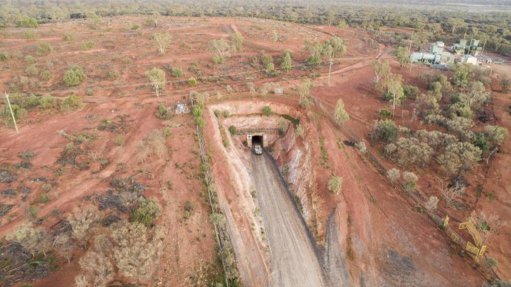Mining firms urged to improve stakeholder strategies or risk delays and disruption
TORONTO (miningweekly.com) – Mining companies must do more to assess and emphasise the benefits of corporate social responsibility (CSR), delegates at the Canada-Southern Africa Chamber of Business risk mitigation and CSR seminar were told last week.
Greater efforts are needed in developing corporate profiles that enhance stakeholder recognition, loyalty and trust for mining companies, while also helping to reduce the threat of opposition, disturbance and disruption.
MATCHMAKING
University of Pennsylvania professor of management at the Wharton School Witold Henisz tied CSR to the concept of corporate diplomacy. “This is the effort to win the hearts and minds of stakeholders and to enhance shareholder value. [Here] I’d suggest you’re not doing as well as you think,” he said last Tuesday.
“We’ve got to stop talking to ourselves and find a way to communicate the value we create. But we’ll have to affect some fundamental changes in order to this,” he added. “We need to get beyond producing 100-page, 200-page, even 500-page reports that read like books but no one ever reads.”
Divinsky Group founder Pamela Divinsky agreed, noting that it was worthwhile to view CSR and public relations as an exercise in matchmaking. “What you guys mine is essential for our day-to-day lives but you’re getting a lot of bad press. You’re the kind of guy that no interesting, grown-up woman would want to hang out with,” she quipped.
“You need to improve your matchmaking abilities. But what you’re doing – and you’re clearly doing a lot by way of stakeholder engagement, risk assessment, risk mitigation, risk management and CSR – isn’t really working. Certainly this is the case in terms of Western press coverage,” she said.
“At a bare minimum, [opposition] makes it difficult to secure the social licence to operate, or what I’d suggest is actually permission to operate. Because this isn’t just about the social side – it’s about economic, political and cultural factors as well. This is the critical conversation.”
NUMBER CRUNCH
Complicating matters, those running successful strategies often find it hard to quantify and then advocate their successes in terms of value created or added. Henisz evaluated this issue, noting the financial impact that delays and disruption can have.
For example, the 2011 report by Rachel Davis and Daniel Franks on the value of stakeholder engagement, computed that delays cost a mining project with a capital expenditure of between $3-billion and $5-billion up to $20-million a week in net present value terms.
Henisz’s team examined 19 publicly-traded companies on the TSX, the operators of 26 mines in 24 countries. “On average, we showed that they traded at a 78% discount to the discounted cash-flow they declared in their financial statements,” he said. “We then coded in around 50 000 newspaper articles to assess whether they were supported or not by stakeholders.”
“Through an explanation of how stakeholders view the firm, we found you could reduce this discount down to 10%,” he noted. “The punchline is that stakeholder engagement was worth twice as much as gold for these 19 publicly-traded firms.”
“Further, we can examine these elements down to project level by using the IFC [International Finance Corporation] financial valuation tool. Here we create a model using data already on the risk register – the risk of production disruption, the risk of legal settlements and the risk of other costs,” he said.
“Then, using a Monte Carlo simulation [a computational analysis based on repeated random samples], we can come up with the net present value of stakeholder engagement,” he explained. “For one mining company, the net present value on some stakeholder engagement was over 46% ROI [return on investment].”
“Now when you present numbers that show stakeholder engagement pays 46%, a CFO’s opinion will change from ‘I don’t have time to talk’ to ‘how can I help?’ or ‘what can we do to make this better?’”
SPEAK TO ME
But even with the right evidence to hand, many proponents of stakeholder engagement still fail to present their case clearly and concisely. Matters are compounded by their failure to consider the objectives and constraints of colleagues and management.
“One of the ironies of stakeholder engagement is that – as much as you tell people they should listen to the stakeholders – you don’t follow this approach when talking to financial executives or operational executives within your own firms,” Henisz said. “You don’t listen to what’s important to them, but you still try to teach them or tell them to see the world in the way you do.”
“So undertake more stakeholder engagement within your own firms if you want to affect change,” he stressed. “And this needs to be a continuous loop of learning so that’s not just about consulting stakeholders but about consulting across [company] functions too. For example, ask the head of security, the head of operations and the head of finance how you can do better.”
Broadening the question of engagement into the wider public sphere, Henisz stressed that the issue of trust was critical. “We need to build trust, not just through the demonstration of expertise, but also by demonstrating empathy, long-term commitments to a community and the demonstration of transparency,” he said.
Divinsky concurred, adding that companies can achieve tangible success by engaging stakeholder in an honest and truthful manner; any form engagement considered to be false or fallacious will receive short shrift.
“Actions speak louder than any great communications plan. The public expects real impact and you need to tell the story of the positive effect you’re having,” she said. “But remember that people are extremely savvy consumers of communications, so you need to be experienced by them as both real and authentic.”
“[Overall, companies] must embed, integrate and align this amorphous category called CSR into the centre of the business. That is a deep truth and it is no longer optional,” she added. “We live in a complex environment, with lots of interests to negotiate. You have to convince the other players that your interests are their interests, and that their interests are yours.”
Comments
Press Office
Announcements
What's On
Subscribe to improve your user experience...
Option 1 (equivalent of R125 a month):
Receive a weekly copy of Creamer Media's Engineering News & Mining Weekly magazine
(print copy for those in South Africa and e-magazine for those outside of South Africa)
Receive daily email newsletters
Access to full search results
Access archive of magazine back copies
Access to Projects in Progress
Access to ONE Research Report of your choice in PDF format
Option 2 (equivalent of R375 a month):
All benefits from Option 1
PLUS
Access to Creamer Media's Research Channel Africa for ALL Research Reports, in PDF format, on various industrial and mining sectors
including Electricity; Water; Energy Transition; Hydrogen; Roads, Rail and Ports; Coal; Gold; Platinum; Battery Metals; etc.
Already a subscriber?
Forgotten your password?
Receive weekly copy of Creamer Media's Engineering News & Mining Weekly magazine (print copy for those in South Africa and e-magazine for those outside of South Africa)
➕
Recieve daily email newsletters
➕
Access to full search results
➕
Access archive of magazine back copies
➕
Access to Projects in Progress
➕
Access to ONE Research Report of your choice in PDF format
RESEARCH CHANNEL AFRICA
R4500 (equivalent of R375 a month)
SUBSCRIBEAll benefits from Option 1
➕
Access to Creamer Media's Research Channel Africa for ALL Research Reports on various industrial and mining sectors, in PDF format, including on:
Electricity
➕
Water
➕
Energy Transition
➕
Hydrogen
➕
Roads, Rail and Ports
➕
Coal
➕
Gold
➕
Platinum
➕
Battery Metals
➕
etc.
Receive all benefits from Option 1 or Option 2 delivered to numerous people at your company
➕
Multiple User names and Passwords for simultaneous log-ins
➕
Intranet integration access to all in your organisation





















